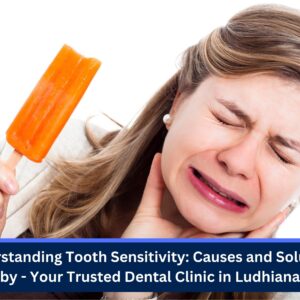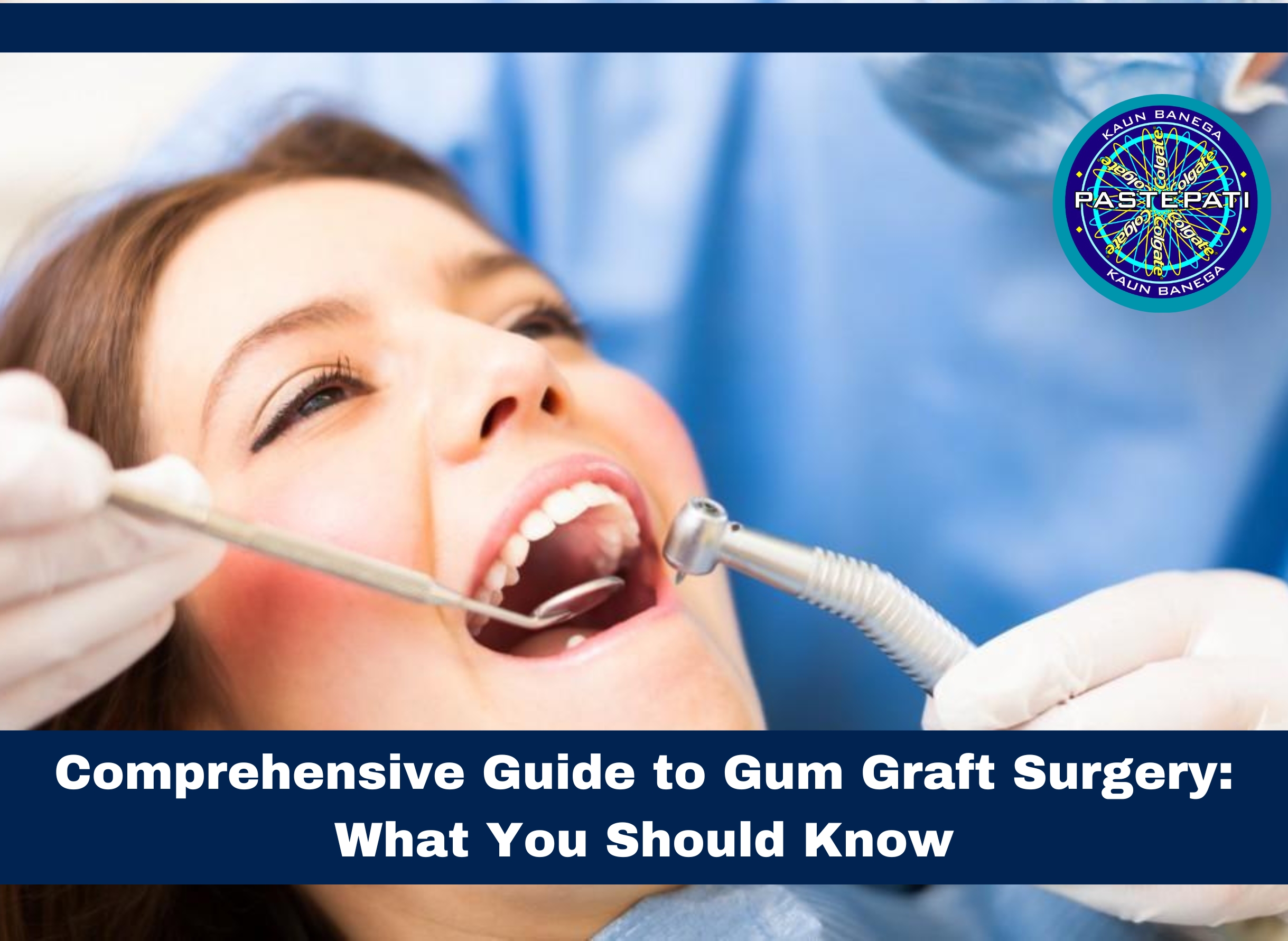
Tooth sensitivity can be an uncomfortable and sometimes painful experience, affecting your ability to enjoy hot and cold foods or beverages. But what causes this sensitivity, and more importantly, what can you do to alleviate it? In this comprehensive guide brought to you by Kaunbnegapastepati, your trusted dental clinic in Ludhiana, we will delve into the various causes of tooth sensitivity and provide practical solutions. To make this information even more personalized, we’ve included a questionnaire that will help you identify potential causes of your tooth sensitivity and recommend suitable remedies.
Understanding Tooth Sensitivity
Tooth sensitivity, also known as dentin hypersensitivity, occurs when the underlying dentin layer of your teeth becomes exposed. Dentin is filled with tiny tubules that lead directly to the nerve center of your tooth. When these tubules are exposed, they allow hot, cold, acidic, or sweet substances to stimulate the nerves within your teeth, causing sensitivity and discomfort.
Common Causes of Tooth Sensitivity
1. Receding Gums: Gum recession can expose the dentin near the tooth roots. This can be due to gum disease, aggressive brushing, or natural aging.
2. Tooth Decay: Cavities or tooth decay can create openings in your teeth, exposing dentin to external stimuli.
3. Enamel Erosion: Enamel erosion can occur due to excessive consumption of acidic foods and drinks, as well as conditions like acid reflux.
4. Fractured Teeth: Cracked or chipped teeth can expose dentin and lead to sensitivity.
5. Bruxism (Teeth Grinding): Excessive teeth grinding, often done unconsciously during sleep, can wear down enamel and lead to sensitivity.
6. Tooth Whitening: Some people experience temporary sensitivity after teeth whitening treatments.
7. Dental Procedures: Sensitivity can occur after certain dental procedures like fillings or root canals.
Questionnaire: Identifying the Cause of Your Tooth Sensitivity
Let’s identify the potential cause(s) of your tooth sensitivity. Please answer the following questions:
1. Do you experience tooth sensitivity when consuming hot or cold foods/drinks?
– [ ] Yes
– [ ] No
2. Have you noticed any gum recession or changes in the appearance of your gums?
– [ ] Yes
– [ ] No
3. Have you had any recent dental work or procedures done (e.g., fillings, crowns, root canals)?
– [ ] Yes
– [ ] No
4. Do you grind your teeth or clench your jaw, especially at night?
– [ ] Yes
– [ ] No
5. Do you frequently consume acidic foods or drinks (e.g., citrus fruits, soda)?
– [ ] Yes
– [ ] No
6. Have you been diagnosed with acid reflux or gastroesophageal reflux disease (GERD)?
– [ ] Yes
– [ ] No
7. Do you have a history of tooth decay or cavities?
– [ ] Yes
– [ ] No
Now, let’s evaluate your responses to determine the potential cause(s) of your tooth sensitivity:
– If you answered “Yes” to questions 1 and 2, gum recession or enamel erosion may be the cause.
– If you answered “Yes” to questions 4 or 5, bruxism or dietary factors could contribute.
– If you answered “Yes” to question 3, recent dental work may be a factor.
– If you answered “Yes” to question 6, acid reflux could be contributing to your sensitivity.
– If you answered “Yes” to question 7, a history of tooth decay may play a role.
Solutions for Tooth Sensitivity
Now that you have a better understanding of what might be causing your tooth sensitivity, let’s explore potential solutions:
1. Desensitizing Toothpaste: Specialized desensitizing toothpaste can help block the tubules in the dentin and reduce sensitivity.
2. Gentle Brushing: Use a soft-bristle toothbrush and gentle brushing techniques to avoid further enamel erosion or gum recession.
3. Fluoride Mouthwash: Fluoride can strengthen enamel and reduce sensitivity. Rinse with a fluoride mouthwash as directed by your dentist.
4. Dietary Adjustments: Limit your consumption of acidic and sugary foods and drinks. Consider drinking through a straw to minimize contact with teeth.
5. Bruxism Management: If teeth grinding is a factor, your dentist can provide a custom nightguard to protect your teeth.
6. Professional Treatments: Depending on the cause, your dentist at kaunbnegapastepati may recommend treatments like dental bonding, inlays/onlays, or a gum graft for gum recession.
7. Addressing Underlying Conditions: If acid reflux or GERD is contributing to your sensitivity, consult with a healthcare professional for appropriate management.
8. Regular Dental Check-ups: Maintain regular visits to kaunbnegapastepati, your Ludhiana dental clinic, for professional cleanings and to monitor your tooth sensitivity.
Conclusion
Tooth sensitivity can disrupt your daily life, but it doesn’t have to be a permanent issue. By understanding the causes and solutions for tooth sensitivity, you can take proactive steps to alleviate discomfort and protect your oral health. If you’re experiencing persistent tooth sensitivity, don’t hesitate to reach out to kaunbnegapastepati, your trusted dental clinic in Ludhiana, for expert guidance and personalized care. Remember, a pain-free smile is just a visit away.




